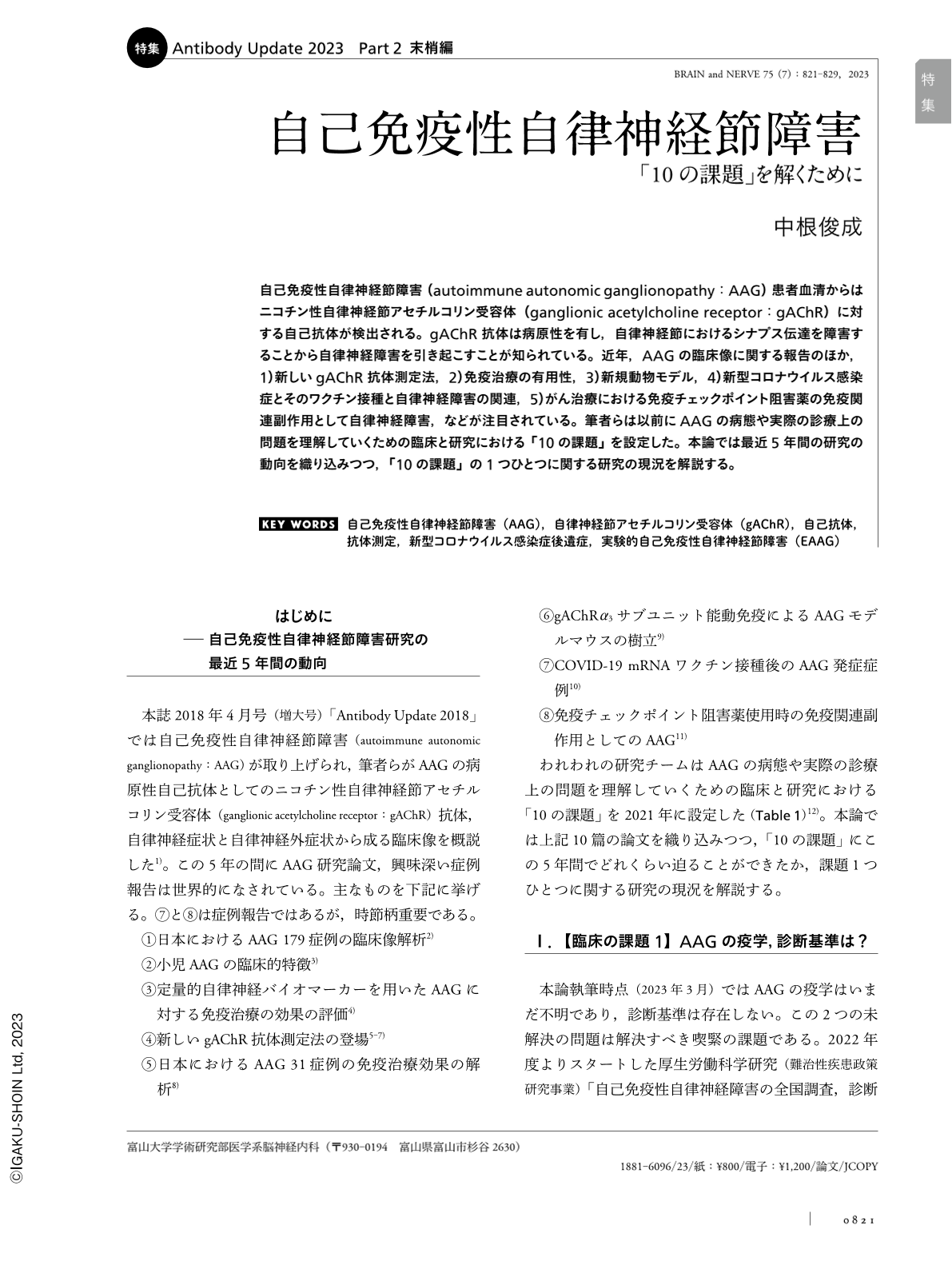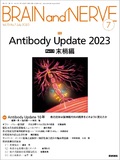Japanese
English
- 有料閲覧
- Abstract 文献概要
- 1ページ目 Look Inside
- 参考文献 Reference
自己免疫性自律神経節障害(autoimmune autonomic ganglionopathy:AAG)患者血清からはニコチン性自律神経節アセチルコリン受容体(ganglionic acetylcholine receptor:gAChR)に対する自己抗体が検出される。gAChR抗体は病原性を有し,自律神経節におけるシナプス伝達を障害することから自律神経障害を引き起こすことが知られている。近年,AAGの臨床像に関する報告のほか,1)新しいgAChR抗体測定法,2)免疫治療の有用性,3)新規動物モデル,4)新型コロナウイルス感染症とそのワクチン接種と自律神経障害の関連,5)がん治療における免疫チェックポイント阻害薬の免疫関連副作用として自律神経障害,などが注目されている。筆者らは以前にAAGの病態や実際の診療上の問題を理解していくための臨床と研究における「10の課題」を設定した。本論では最近5年間の研究の動向を織り込みつつ,「10の課題」の1つひとつに関する研究の現況を解説する。
Abstract
Autoimmune autonomic ganglionopathy (AAG) is a rare acquired immune-mediated neurological disease that causes various autonomic symptoms. AAG is induced by autoantibodies for the α3 and β4 subunits of the ganglionic acetylcholine receptor (gAChR). gAChR antibodies mediate synaptic transmission in all autonomic ganglia, resulting in dysautonomia. Recent clinical and basic research topics in AAG include the following: 1)analysis of clinical features; 2)novel methods for gAChR antibody detection; 3)efficacy of combined immunotherapy; 4)novel experimental AAG; 5)COVID-19 and mRNA COVID-19 vaccination and its association with autonomic dysfunction; and 6)dysautonomia as an immune-related adverse event of immune checkpoint inhibitors in cancer therapy. The author and his collaborators have previously established “10 assignments” to understand the basic research and clinical issues of AAG. In this review, the author describes the current status of research on each of the “10 assignments,” incorporating research trends over the last five years.

Copyright © 2023, Igaku-Shoin Ltd. All rights reserved.


